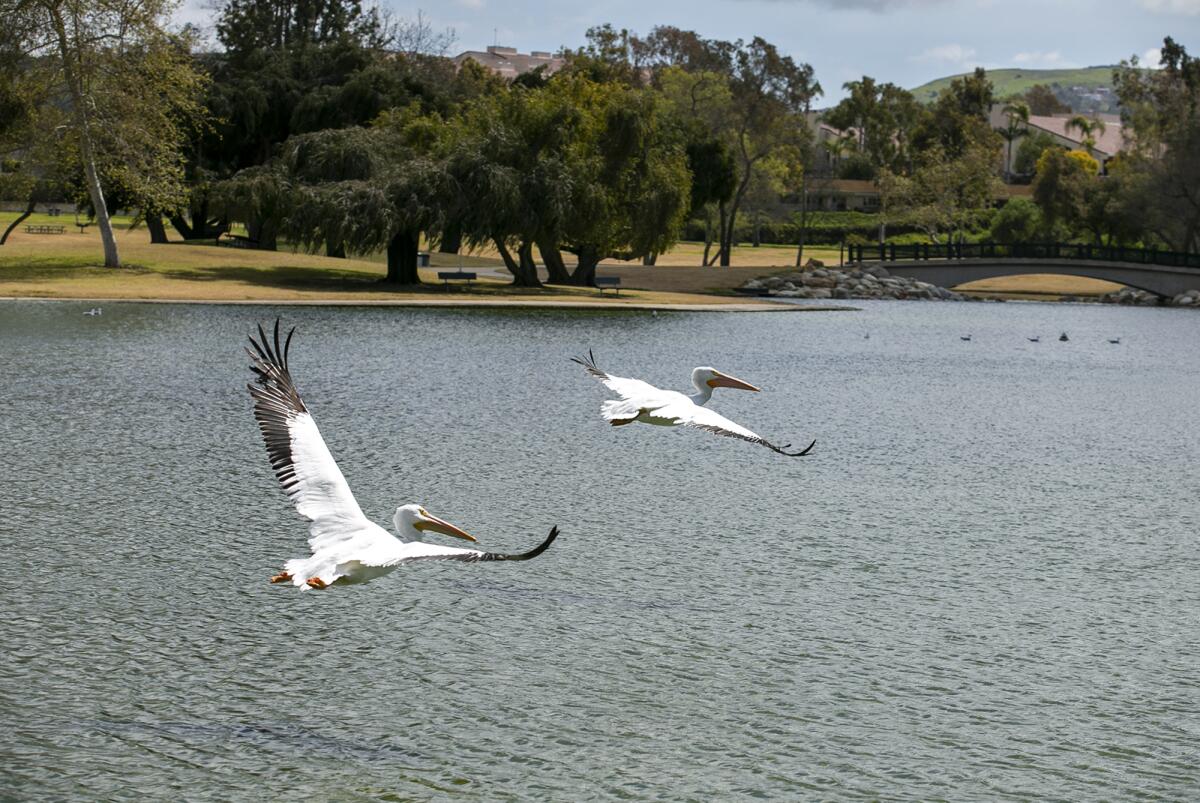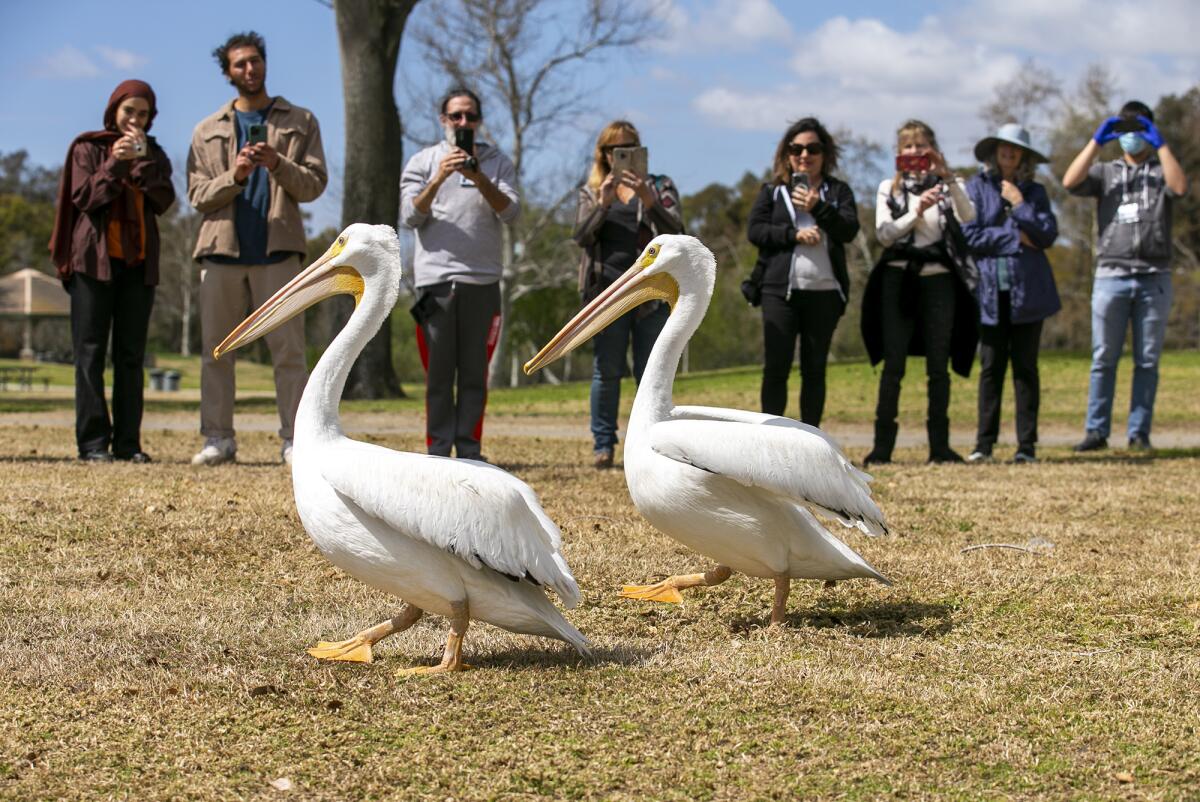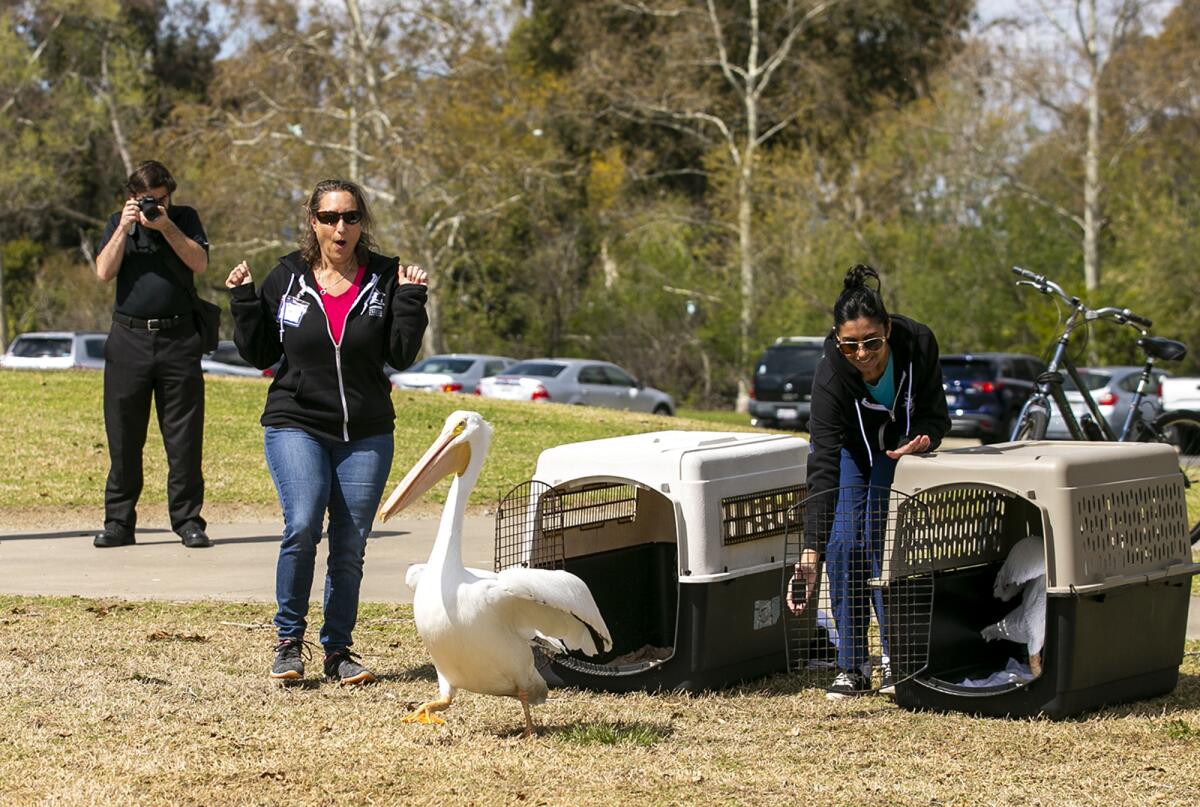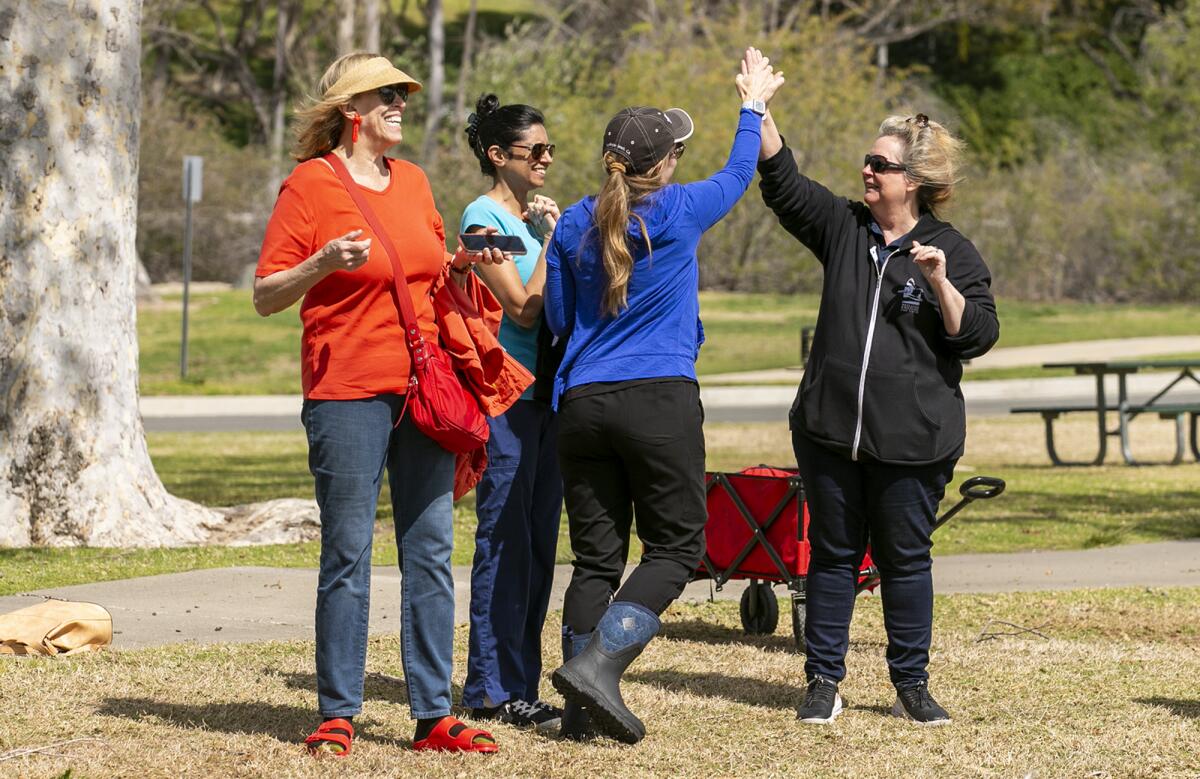White pelicans fly free in Irvine after yearlong recuperation at Wetlands & Wildlife Care Center

- Share via
From grounded birds to flying ones, two of the three American white pelicans that had been under the care of Wetlands & Wildlife Care Center were finally free to set their sights high after their release Wednesday afternoon.
The two birds initially arrived at the center with another pelican, according to officials at the center, which focuses on the rehabilitation and release of both injured and orphaned wildlife.

The trio were brought to the center in February of last year, unable to fly due to damage to their primary and secondary flight feathers on both wings, in addition to broken tail feathers.
In addition, the birds were soiled, dehydrated and in poor overall health. The third bird was able to be released after a few months of recuperation, though the remaining two stayed at the center for 376 days.
The birds were released at the William R. Mason Regional Park.
“To be able to set them free again is the best gift we can give them,” executive director Debbie McGuire said in a statement announcing the release on Tuesday.

According to the National Audubon Society, a nonprofit dedicated to bird conservation, American white pelicans are primarily migratory birds, though they are considered to be relatively common to the California coastline during the winter. They are also one of the largest birds in North America, with a wingspan of roughly 9 feet, and are larger than brown pelicans.
Officials said care for the birds was provided by volunteers, a dedicated veterinarian and wildlife technicians, an all-in-all process that was financed by donations from the public. The average daily cost to care for a pelican is about $45, according to the Wetlands & Wildlife Care Center, so the costs associated with caring for just the three that arrived together total more than $30,000.
Donations can be made at the center’s website, wwccoc.org.

All the latest on Orange County from Orange County.
Get our free TimesOC newsletter.
You may occasionally receive promotional content from the Daily Pilot.








